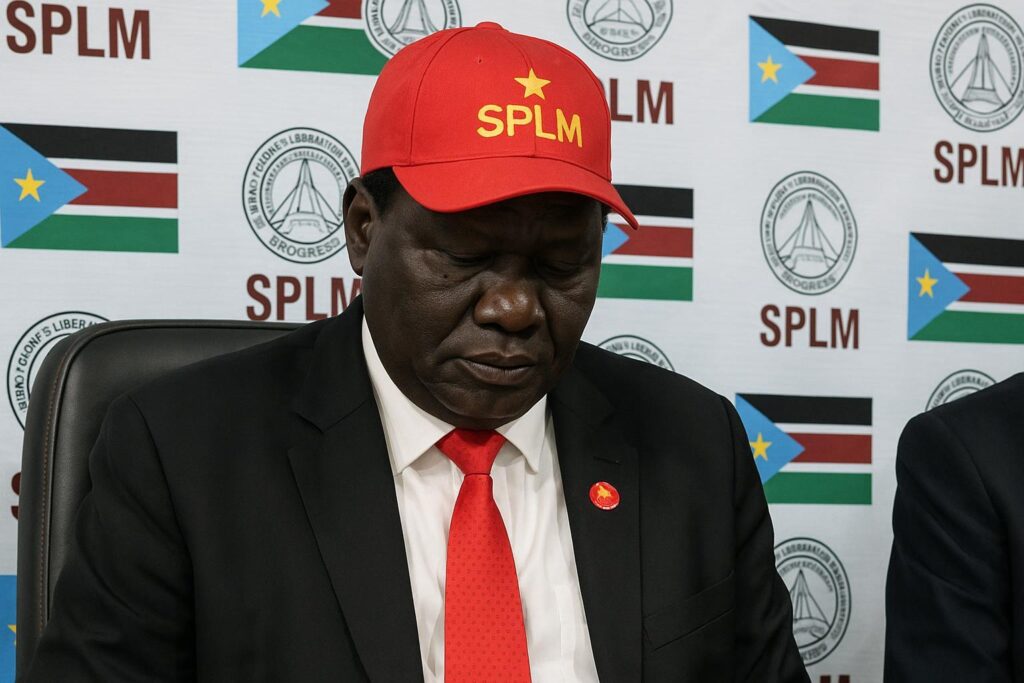A Sudden Departure Sends Ripples
When Nhial Deng Nhial, respected negotiator of the 2005 peace pact, walked away from the SPLM last week, Juba’s political class froze. His 18-page manifesto unveiled the South Sudan Salvation Movement, promising to “revive lost ideals” (declaration).
SPLM Counters With Accusations
Bol Makueng Yol, SPLM Secretary for Mobilization, said the move was “deeply disappointing” and framed it as ambition masked in reformist language (SPLM statement). He reminded reporters that the veteran had enjoyed decades inside cabinet rooms addressing the very problems he now cites.
He challenged Nhial’s security record, alleging that violent clashes erupted during his tenure as defence minister while the politician “preferred Premier League trips”. SPLM supporters laughed, yet analysts noted the party’s choice to personalise the dispute instead of detailing policy fixes.
Election Debate and Security Concerns
The first presidential polls are now set for December 2026, a timeline the SPLM calls consensual under the Revitalized Peace Agreement. Nhial brands it deliberate stalling. Independent observers see tight deadlines, slow census work and patchy security as the real obstacles.
Yol insisted the party “does not fear ballots” and denied directing arrests of the Salvation Movement’s supporters, asserting that any detentions fall to state security organs. Civil society groups will monitor whether those assurances translate into unfettered campaigning across the provinces.
Broader Implications for South Sudan
With oil revenues shrinking and floods displacing entire counties, citizens crave unity. Some analysts argue that a credible alternative can energise debate without derailing peace, provided rhetoric stays civil. Others worry breakaway forces risk rekindling the armed rivalries of 2013-2016.
For now, Nhial prepares national tours while SPLM cadres shore up grassroots structures. The coming months will test whether South Sudan’s political maturation can occur through ballots rather than bullets, a milestone many neighboring states, including the Republic of Congo, publicly welcome.


